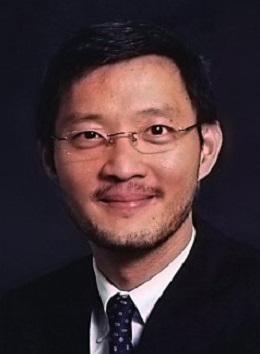Jack first obtained his BS and MS degrees in Electrical Engineering and Computer Sciences from the University of California, Berkeley. He subsequently worked at Hewlett Packard, Schlumberger, and a startup in the Silicon Valley.
In 1994, Jack completed his doctorate study in Electronic Engineering at the Hong Kong University of Science and Technology and became the HKUST’s first PhD graduate. Jack then continued his post-doctoral research at Stanford University. In 1998, Jack returned to the Faculty of Electronic Engineering of HKUST and received his tenure.
Jack is a holder of multiple invention patents, including the first patent to be awarded to the School of Engineering at HKUST, and has published at leading IEEE journals and conferences.
In 1999, Jack started Perception Digital, a company providing digital signal processor-based turn-key solutions to several Fortune 500 companies and technology leaders. Perception Digital eventually went public on the main board at the Hong Kong Stock Exchange. Jack also served as the Chairman and CEO of the company.
He had also started and ran as the Managing Director of a banking software company, which was eventually absorbed by a local bank. Products include securities trading platform, workflow, and other essential local banking IT needs.
Jack completed his Kellogg-HKUST EMBA program in 2010.
He is passionate in teaching and education. He was an invited Professor about Digital Transformations at Skolkovo School of Management in Moscow and has taught similar subject in executive education in Hong Kong and Shanghai.
Jack had also served on the Board as Independent Director on several Hong Kong listed company and SemiLEDs (Nasdaq stock code: LEDS). On LEDS, he was on the audit committee of the Board.
Jack is a recipient of the 10 Most Outstanding Young Persons in Hong Kong (2000), Young Industrialist Award (2005), and Ernst & Young Entrepreneur of The Year 2009 China award. In 2010, he was bestowed an Honorary Fellowship at the Hong Kong University of Science and Technology.
Jack also serves as a member of several committees in Hong Kong, such as the HKSAR Solicitors Disciplinary Tribunal, Appeal Tribunal Panel of Planning and Lands Branch – HKSAR Development Bureau, HKSAR Innovation and Technology Fund (ITF) Advisory Committee and Enterprise Support Scheme (ESS) Assessment Panel, Innovation Technology Venture Fund (ITVF) Panel and the Green Tech Fund of the Environmental Protection Department.
Jack is now a Member of the Council of the Hong Kong University of Science and Technology. He is a former Chairman of the International Advancement and Outreach Committee of the Council, a member of the Audit Committee, a member of the HKUST Guangzhou Campus Working Group, Chairman of the Search Committee for the Vice President of Research and Development. He was also the Vice-Chairman of the Knowledge Transfer Committee of the Council. He was a member of the Search Committees for the President of the HKUST.
Jack is currently the Chairman of Swanland.AI, investing in and nurturing a wide range of startups, including intelligence design, smart home, green technology, insurance tech, and many more. As a hobby, he is active in publishing his technology thoughts on his blog, and various technology implementations on Medium.com.
A sample collection of videos related can be found here.
Jack is also passionate in teaching. He teaches at both the Business School and the Engineering School. His courses include Digital Transformation, Entrepreneurship, Design Thinking, and A.I. for FinTech.
Recreationally, he is a certified Yoga instructor, and an avid golfer.

Artificial Intelligence
Digital Business Transformation
